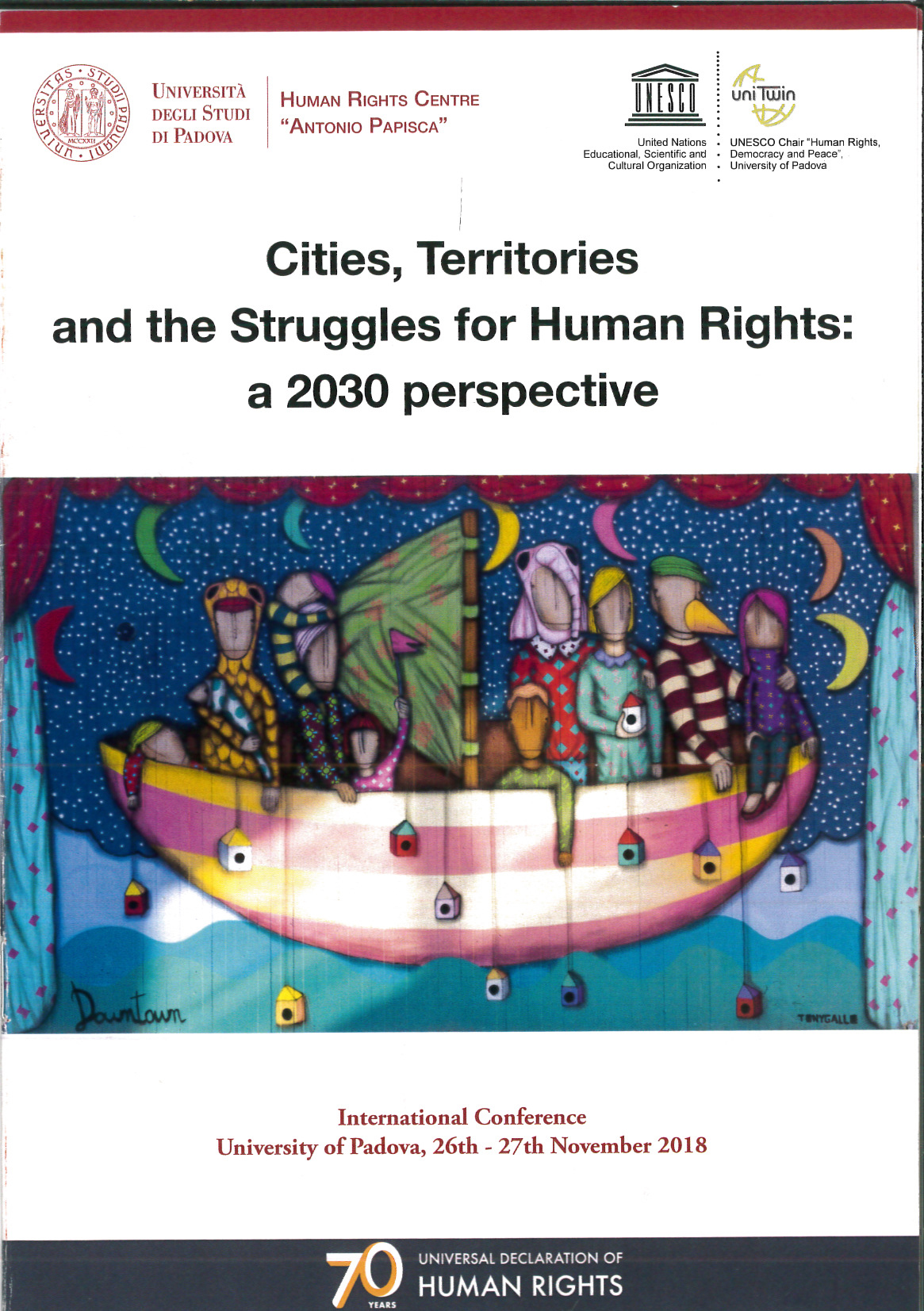Cities, Territories and the Struggles for Human Rights: a 2030 perspective
On 26th of November 2018, Monika Mayrhofer presented a paper on “Monitoring human rights – the role of cities” at the international conference “Cities, Territories and the Struggles for Human Rights: a 2030 perspective”, which took place in Padova/Italy. The Conference was organised by the Human Rights Centre of the University of Padova in cooperation with the University of London, University of Gothenburg, University of Graz, University of Cape Town and University of Antwerp.
Due to growing urbanisation, cities and local communities have increasingly gained in importance over the last decades. They have become central actors with regard to managing social, economic, political and cultural challenges. Cities and communities also claim a more and more decisive role with regard to the promotion and protection of human rights. During the last decades several international documents and human rights instruments which aim at defining the role of cities and local communities concerning the enhancement and protection of human rights have been adopted. More and more cities adopt commitments to become human rights cities in order to emphasise the significance of human rights for their local policies. In doing so, cities and communities take a leading role concerning the advancement of human rights, for example, by aiming at combating nationalist and xenophobic tendencies and highlighting the importance of diversity for prosperity and innovation on local level.
The conference “Cities, Territories and the Struggles for Human Rights: a 2030 perspective” aimed at presenting different approaches and initiatives of cities and sub-national units to integrate and promote human rights in local governance. The discussions not only focussed on how cities can manage increasing diversity for the benefit of all inhabitants, they also dealt with topics such as the technologisation of more and more areas of urban life and the importance of human rights in this context, the role of cities on a global level, the knowledge and expertise of cities to deal with the issues of migration and asylum and the role of human rights approaches and tools to cope with social, economic, political and other challenges. An important approach in this context is the monitoring of human rights at local level. Monika Mayrhofer analysed in her presentation basic principles and examples of monitoring human rights at community level and explored the role, responsibilities, challenges and opportunities for cities to establish human rights monitoring tools.
